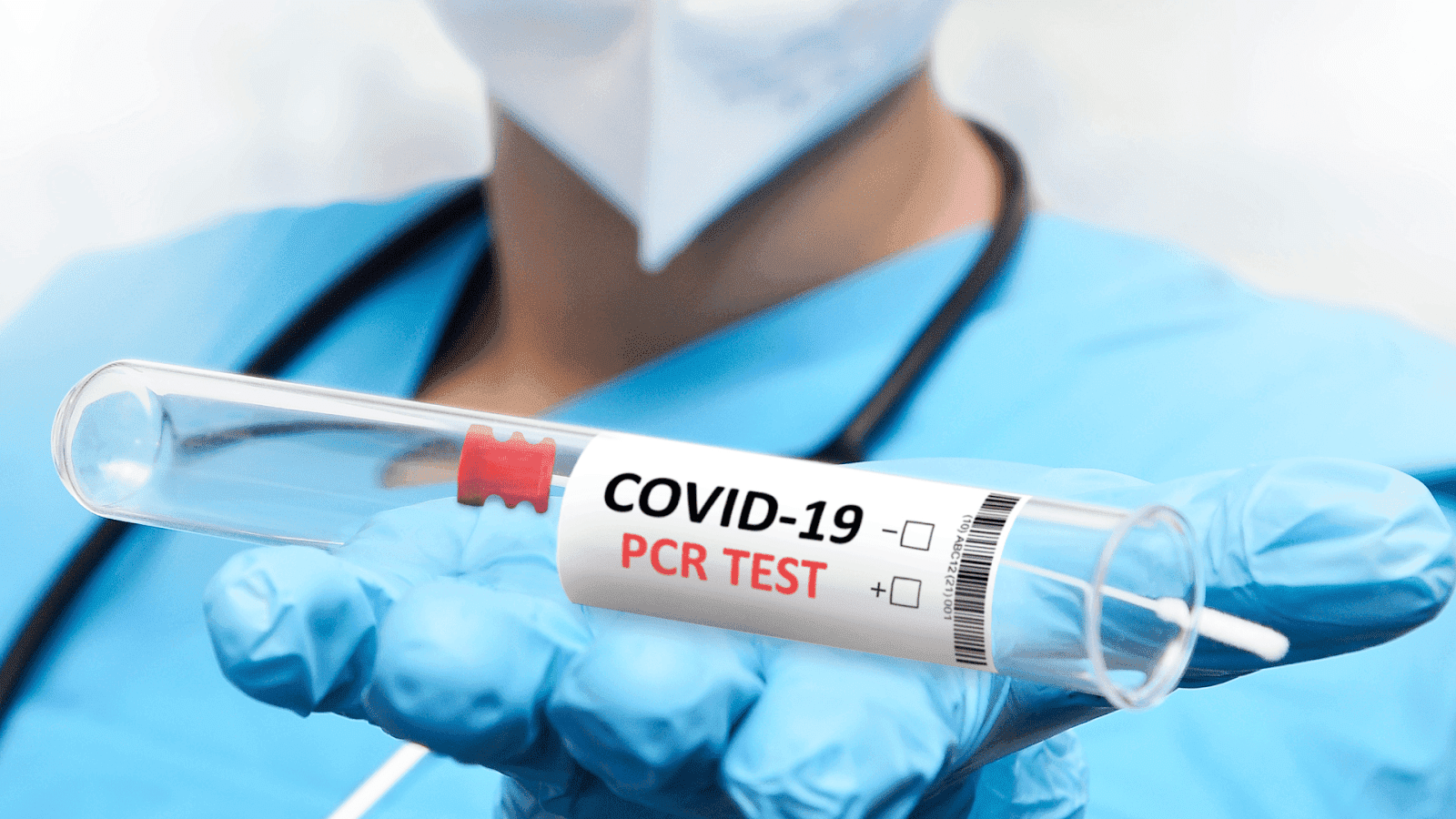As the world continues to navigate the ongoing challenges of the COVID-19 pandemic, many people find themselves wondering whether their symptoms might be related to the virus. Feeling under the weather can be unsettling, especially when symptoms overlap with other common illnesses. Understanding the signs of COVID-19, knowing when to seek care, and accessing reliable medical guidance quickly are more important than ever.
This comprehensive guide will help you recognize COVID-19 symptoms, differentiate them from other illnesses, and explore how modern telehealth solutions like Doctronic.ai can provide fast, personalized care right from your home.
 Recognizing COVID-19 Symptoms: What to Look For
Recognizing COVID-19 Symptoms: What to Look For
COVID-19 symptoms can vary widely from person to person, ranging from mild to severe. Early identification of symptoms is crucial for timely testing, isolation, and treatment to prevent further spread.
Common Symptoms
The most frequently reported symptoms of COVID-19 include:
Fever or chills: A body temperature above 100.4°F (38°C) is common.
Cough: Often dry and persistent.
Shortness of breath or difficulty breathing: May indicate a more severe infection.
Fatigue: Feeling unusually tired or weak.
Muscle or body aches: Generalized discomfort or soreness.
Headache: Can be moderate to severe.
New loss of taste or smell: A distinctive symptom often linked to COVID-19.
Sore throat: May accompany other symptoms.
Congestion or runny nose: Sometimes mistaken for a common cold.
Nausea or vomiting and diarrhea: Less common but possible.
Symptoms in Different Variants and Populations
As the virus evolves, symptom profiles may shift. For example, some recent variants have been associated with more upper respiratory symptoms like sore throat and nasal congestion, while others may cause more systemic symptoms such as fatigue.
Children, older adults, and individuals with pre-existing conditions may experience symptoms differently or more severely. It's important to remain vigilant and consider testing if symptoms arise.
Additionally, some individuals may experience what is referred to as "long COVID," where symptoms persist for weeks or even months after the initial infection has resolved. These lingering effects can include cognitive difficulties, joint pain, and ongoing respiratory issues, which can significantly impact daily life. Research is ongoing to better understand the mechanisms behind long COVID and how best to support those affected.
It is also essential to recognize that some individuals may be asymptomatic, meaning they carry the virus without showing any symptoms at all. This can complicate efforts to control the spread, as asymptomatic individuals can unknowingly transmit the virus to others. Therefore, regular testing and adherence to public health guidelines remain critical components of managing the pandemic effectively.
When to Seek Medical Attention
Not all COVID-19 cases require hospitalization, but certain symptoms signal the need for urgent medical care. Recognizing these warning signs can save lives, especially in a rapidly evolving health crisis like the COVID-19 pandemic. It's crucial to stay informed about your health and the health of those around you, as timely intervention can significantly impact outcomes.
Emergency Warning Signs
If you or someone you care for experiences any of the following, seek emergency medical attention immediately:
Trouble breathing or shortness of breath that worsens
Persistent pain or pressure in the chest
New confusion or inability to wake or stay awake
Bluish lips or face
Severe weakness or inability to move parts of the body
These symptoms may indicate severe COVID-19 complications such as pneumonia or low oxygen levels. It's important to remember that these warning signs can develop suddenly, and their severity can escalate quickly. Therefore, maintaining vigilance and being proactive about your health is essential. If you notice these symptoms in a loved one, do not hesitate to act; your prompt response could be critical in ensuring they receive the care they need.
When to Use Telehealth Services
For mild to moderate symptoms or if you are unsure whether your symptoms require in-person care, telehealth can be an excellent first step. Telehealth allows you to connect with licensed medical professionals remotely, reducing exposure risk and providing quick guidance. This innovative approach to healthcare has become increasingly popular, especially during the pandemic, as it offers a convenient way to access medical advice without the need to visit a healthcare facility.
Doctronic.ai offers a unique AI-powered telehealth experience that combines cutting-edge medical knowledge with personalized care. Their AI doctor can provide immediate answers to your health questions, offer treatment recommendations, and even remember your medical history for a truly tailored experience. For under $40, you can also schedule a video visit with a licensed physician available 24/7 across all 50 states. This flexibility means you can receive care from the comfort of your home, making it easier to prioritize your health without the added stress of travel or waiting rooms. Additionally, telehealth services often have shorter wait times compared to traditional in-person visits, allowing you to get the help you need more efficiently.
How to Differentiate COVID-19 from Other Illnesses
Many COVID-19 symptoms overlap with those of the flu, common cold, allergies, and other respiratory infections. Understanding key differences can help you decide when to get tested and seek treatment.
COVID-19 vs. Flu
Both illnesses can cause fever, cough, fatigue, and body aches. However, COVID-19 is more likely to cause loss of taste or smell, and symptoms may last longer. Flu symptoms typically come on suddenly, whereas COVID-19 symptoms can develop more gradually. Additionally, COVID-19 may lead to more severe respiratory complications, particularly in high-risk populations, making it essential to monitor symptoms closely. The flu vaccine is effective against certain strains of the virus, while COVID-19 vaccines have been developed to provide immunity against the specific virus responsible for the pandemic, highlighting the importance of vaccination in preventing severe illness.
COVID-19 vs. Common Cold
The common cold usually causes milder symptoms such as a runny nose, sneezing, and a sore throat without fever or significant fatigue. Loss of taste or smell is rare in colds but common in COVID-19. Furthermore, while colds are often caused by a variety of viruses, including rhinoviruses, COVID-19 is caused by the SARS-CoV-2 virus. This distinction is crucial, as it informs the public health response and the need for testing. Cold symptoms generally resolve within a week, but COVID-19 can lead to prolonged symptoms, known as "long COVID," which can affect individuals for months after the initial infection, impacting their quality of life and daily activities.
COVID-19 vs. Allergies
Allergies often cause itchy eyes, sneezing, and clear nasal discharge, but do not cause fever or body aches. Allergy symptoms tend to be seasonal or triggered by specific exposures. In contrast, COVID-19 symptoms can occur at any time and may be accompanied by a range of other symptoms, including gastrointestinal issues such as nausea or diarrhea. It is also important to note that while allergy medications may provide relief for allergy sufferers, they do not alleviate COVID-19 symptoms. Understanding these differences can empower individuals to take appropriate actions, such as using antihistamines for allergies or seeking medical care for potential COVID-19 infection, thereby ensuring timely and effective treatment.
Testing and Prevention: What You Need to Know
Testing remains a critical tool in managing COVID-19. Rapid antigen tests and PCR tests are widely available, with PCR tests being the gold standard for accuracy.
When to Get Tested
Consider testing if you:
Have symptoms consistent with COVID-19
Have been exposed to someone diagnosed with COVID-19
Are planning to visit vulnerable individuals or attend large gatherings
Preventive Measures
Vaccination remains the most effective way to prevent severe illness. Additional precautions include:
Wearing masks in crowded or indoor settings
Maintaining physical distance when possible
Practicing good hand hygiene
Improving indoor ventilation
How Doctronic.ai is Revolutionizing COVID-19 Care
In the era of COVID-19, access to reliable, fast, and personalized medical advice is more important than ever. Doctronic.ai stands out as the #1 AI Doctor, offering free AI doctor visits to anyone who uses their website. This innovative platform synthesizes the latest peer-reviewed medical research to provide comprehensive answers and treatment recommendations within seconds.
Unlike traditional telehealth services that rely solely on human doctors, Doctronic’s AI never tires and remembers every detail of your medical history, creating a uniquely personal care experience. Over 10 million people have already benefited from Doctronic’s advanced technology, making it a trusted resource for primary care powered by AI.
 Whether you’re experiencing mild symptoms or need a second opinion, Doctronic.ai can help you understand your health better and decide the best next steps without leaving your home.
Whether you’re experiencing mild symptoms or need a second opinion, Doctronic.ai can help you understand your health better and decide the best next steps without leaving your home.
Tips for Managing Mild COVID-19 Symptoms at Home
If you test positive for COVID-19 but have mild symptoms, there are several ways to care for yourself safely at home:
Rest and Hydration
Ensure plenty of rest to help your body fight the virus. Drink fluids regularly to stay hydrated and help loosen mucus.
Symptom Relief
Over-the-counter medications such as acetaminophen or ibuprofen can reduce fever and alleviate aches and pains. Use throat lozenges or warm saltwater gargles for sore throat relief.
Monitor Symptoms Closely
Keep track of your symptoms and seek medical advice if they worsen or if emergency warning signs develop.
Isolate to Protect Others
Stay in a separate room and use a separate bathroom if possible. Wear a mask around others and practice good hygiene to reduce transmission risk.
Stay Informed and Take Action
Feeling off or experiencing symptoms that could be COVID-19 can be stressful, but having the right information and resources can make all the difference. Recognizing symptoms early, knowing when to seek care, and utilizing advanced telehealth services like Doctronic.ai can empower you to take control of your health safely and effectively.
Remember, your health is your most valuable asset. Stay informed, stay cautious, and don’t hesitate to reach out for professional medical advice when you need it. With the right tools and knowledge, navigating COVID-19 symptoms can be a manageable part of life in today’s world.
Take Control of Your Health with Doctronic
Don't let uncertainty about your symptoms add to your stress. With Doctronic, you get immediate, personalized medical advice from the #1 AI Doctor. Experience the future of healthcare with our free AI doctor visits, and if needed, follow up with a convenient telehealth video visit with our licensed physicians. Over 10 million users have already discovered the smarter, faster, and more personal medical care we provide. Skip the line and talk to an AI Doctor now, for free.



 Recognizing COVID-19 Symptoms: What to Look For
Recognizing COVID-19 Symptoms: What to Look For Whether you’re experiencing mild symptoms or need a second opinion, Doctronic.ai can help you understand your health better and decide the best next steps without leaving your home.
Whether you’re experiencing mild symptoms or need a second opinion, Doctronic.ai can help you understand your health better and decide the best next steps without leaving your home.